How whiskey industry can save millions using new technology from Fort Worth startup
Chase Ament carefully positioned five-gallon wooden barrels on a digital scale at Blackland Distillery in Fort Worth as a bright Texas morning sun floods in through an open roll up door.
A few feet from him, in a room full of casks normally reserved to show devotees how this local distiller makes whiskey, Aaron Hiler is filling barrels with bourbon. A rythmic tap-tap-tap could be heard as Hiler uses a rubber mallet to cork shut each full cask.
“We are testing our new technology,” Ament said.
The technology is so simple, he said, but it holds the promise of saving the whiskey industry millions of dollars by keeping liquor that for centuries distillers took for granted as part of the cost of doing business. There’s even a phrase for it: “angel’s share.”
That share is what Fort Worth-based Devil’s Cask wants to, if not take back, then minimize. They will do this by coating barrels with a silicone-like substance that slows the escape of liquor from the casks without changing its flavor. As whiskey ages in barrels, normally taking 5 to 10 years, company founder and CEO Jeremy Grunewald explains their technology will retain nearly 40% of what would normally be lost through evaporation.
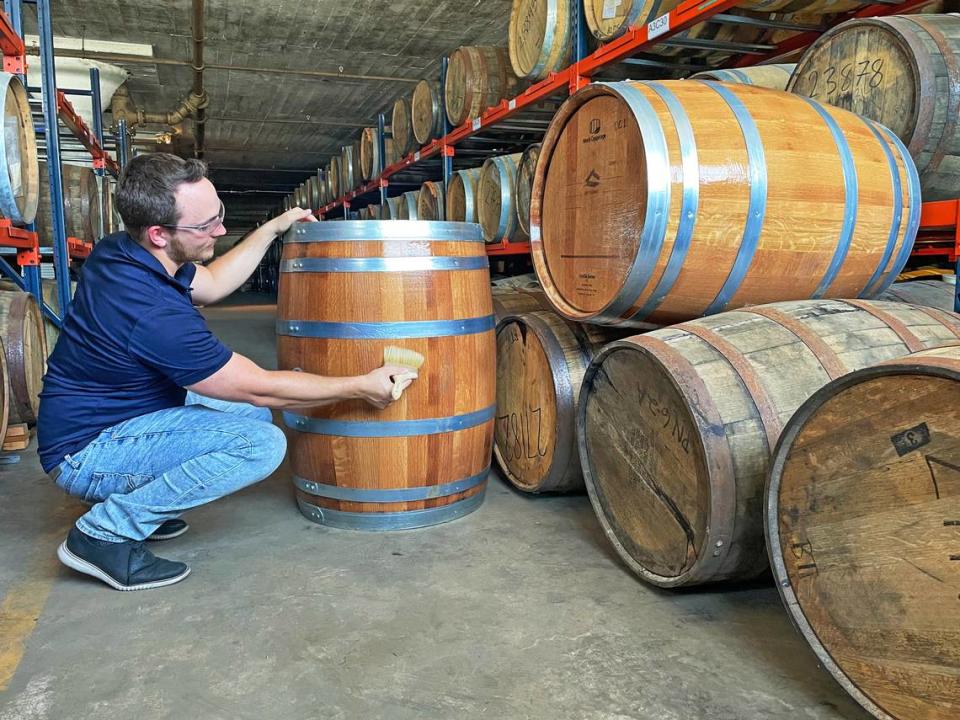
While touring a distillery in Ireland a few years ago, an inspiration struck Grunewald.
“I’m like, ‘I wonder if anyone’s actually tried this before and looked into it and see what types of applications or patents or technologies are out there to kind of improve wooden barrels’,” he told the Star-Telegram. “There’s not a lot of innovation, there’s not a lot of advancement, it’s very much an industry that’s ripe with heritage and tradition.”
Thus the seed of entrepreneurship was planted.
The rising popularity of whiskey gave Grunewald a huge target for his idea. Since 2010, whiskey sales in the U.S. have consistently grown. Nearly 78 million cases of whiskey were sold last year alone or roughly equating to $17 billion, according to statista.com.
Whiskey bars have been popping up in Fort Worth in recent years, and festivals have been organized around the honey-colored liquor. It has permeated pop culture that celebrities, such as Eric Nelsen of “Yellowstone” prequel “1883,” have lent their images to promoting whiskey brands.
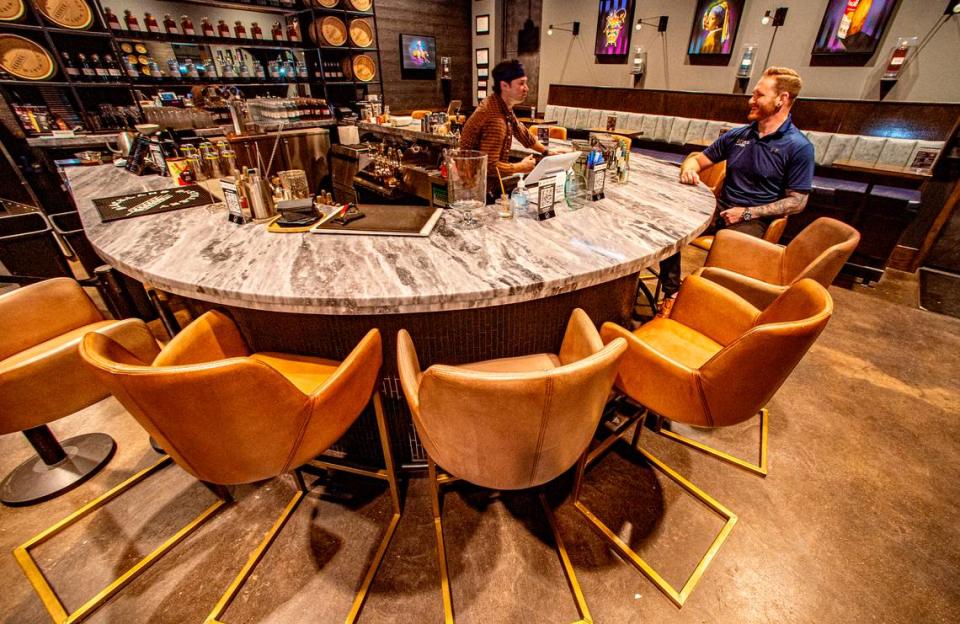
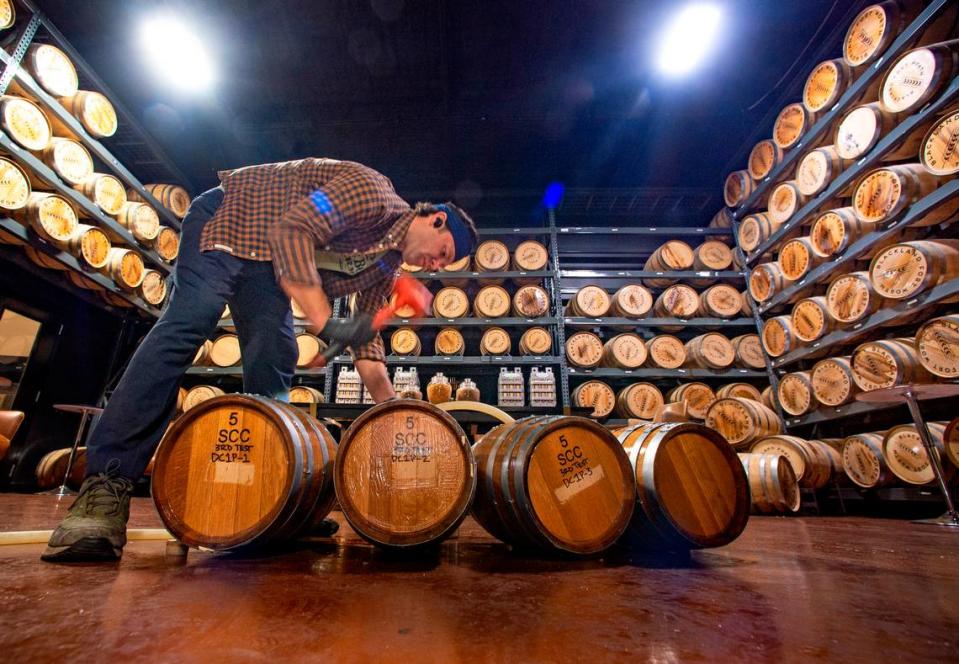
How a roofer’s trick can save the whiskey industry millions
Roof coating and whiskey typically aren’t used in the same sentence, but at Devil’s Cask combining those two thoughts are exactly the point.
“A bunch of roofers walked into a bar,” is the joke tossed around the team, company president Stella Amador said.
The principals in this enterprise — Grunewald, Ament, Amador and Jonathan Dietzel — all worked as roofers before getting together for this venture. Grunewald worked for nearly a decade on his aegis coating formula he initially planned to use as a finishing skin to fortify roofs.
While on a tour of the Jameson Whiskey manufacturing facility in Dublin, Grunewald heard a guide mention that Jameson loses roughly 26,000 bottles a day to evaporation.
It was the moment of epiphany for a guy who had spent his years after college working on techniques to waterproof construction projects.
“I’m like man, ‘This sounds kind of like a waterproofing vapor barrier type of thing that I’ve spent my whole career for the past decade on developing, designing and working with’,” Grunewald said.
But to make his idea a reality he needed a team.
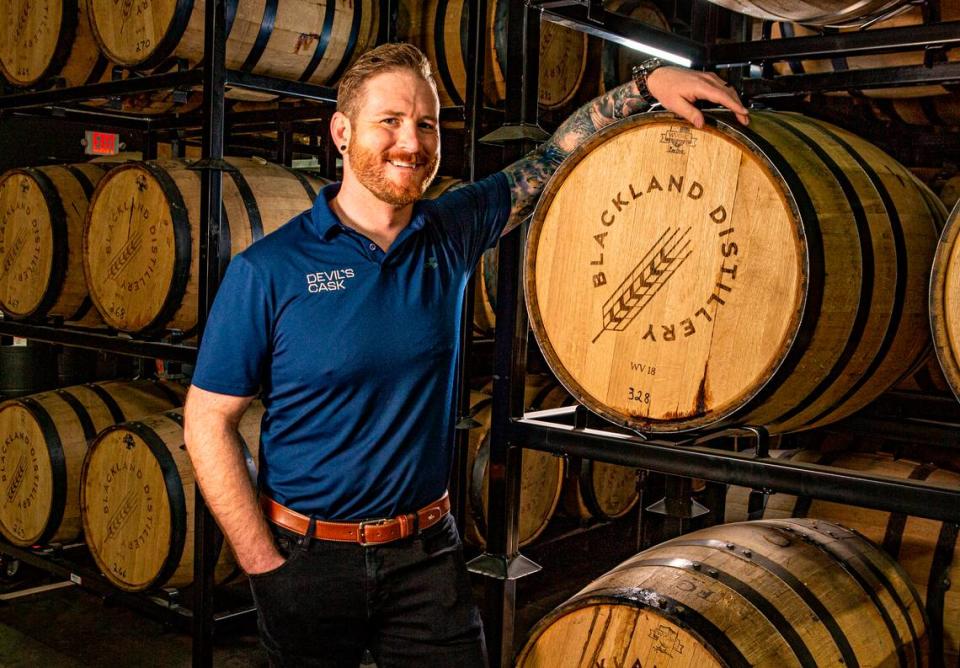
It was not much of a stretch for him to go back to the business he knew well. Former colleagues and friends still toiled in construction. Ament was a pharmacist who, bored with the medical field, turned to installing roofs.
Grunewald worked with Ament and Amador on installing roofs. Dietzel sold the chemicals to them to make their product that would waterproof roofs. It wasn’t a hard sell.
At least for Ament, “I’m all about rolling dice. That was an easy decision for me.”
His work in construction gave him a lifeline from the financial stresses a pandemic wrought, but he was ready for a change. The pull of entrepreneurship and the promise of Grunewald’s idea was too tempting. He accepted the offer to be chief operating officer.
Following Ament, Amador is now president and Dietzel is the key account manager at Devil’s Cask.
The science behind the promise of a Fort Worth startup
When it comes to applying the aegis coating, its as simple as putting paint to canvas.
The clear liquid coating can be applied either by spraying or painting on with a brush. The substance dries into a film-like membrane, Grunewald said. The coating can either be applied to an empty vessel or to an already full barrel.
To test the coating, Grunewald purchased smaller barrels and filled them with water. To mimic the chemical reaction of whiskey, Grunewald later used a mixture of ethanol and water.
Testing has now transitioned to the Fort Worth distillery on Weisenberger Street, a warehouse building tucked behind Montgomery Plaza.
“We experiment with a lot of different things here anyway, so I’m always up for something like that,” said Erza Cox, Blackland’s master distiller and production manager.
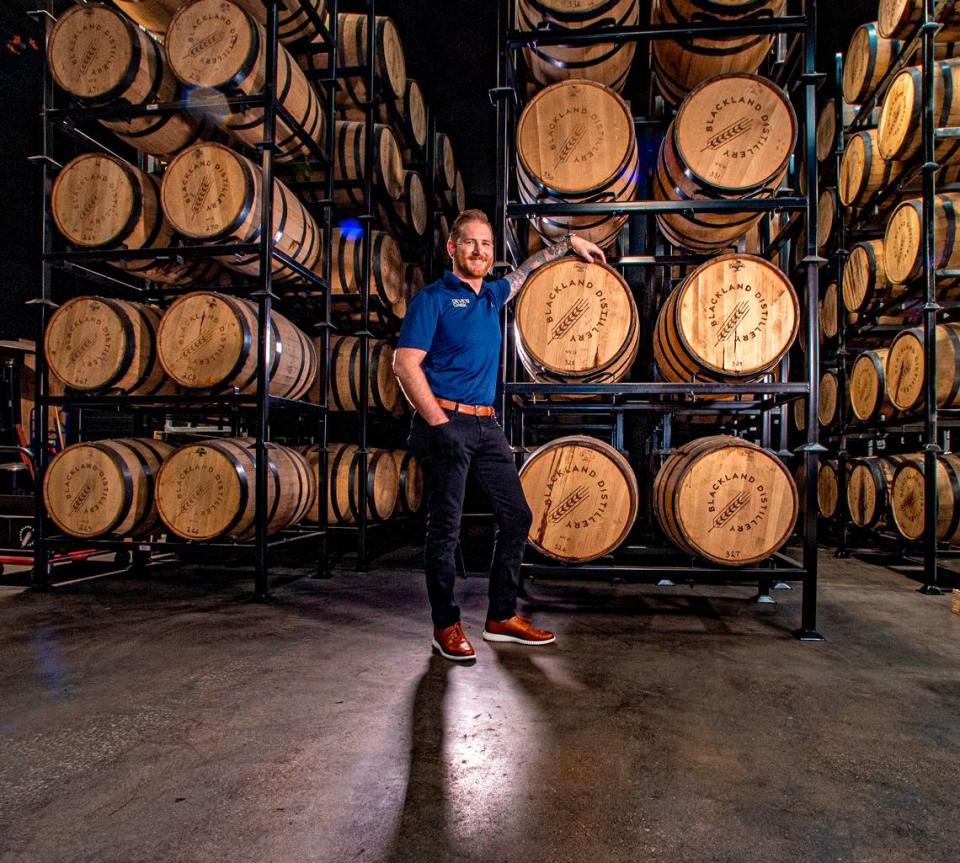
Blackland has around 20 barrels with Devil’s Cask aegis coating on them. The tests will partly tell how the coating changes the flavor profile of the spirit within, if at all.
Cox, with aesthetics in mind, said the coated barrel’s also don’t look too bad around the distillery.
“It’s kind of like the difference between a finished piece of furniture or raw piece of wood that’s been worked on,” Cox said. “[The barrels] have a nice glossy coat to it and they look classy.”
Looks aside, Grunewald points out that the technology doesn’t compel distilleries to change anything in how they do business. The best part for distilleries is they’re not changing anything in their operation, Grunewald said. The distilleries are using the same materials, locations and processes, only with the added step of applying the aegis coating.
“The technology allows them to produce more whiskey out of that exact same barrel,” Grunewald said.
The Devil’s Cask team are bullish about their product, fanning out to Kentucky bourbon country last summer to preach the promise of their technology.
Ament said the talks were encouraging and whiskey companies are waiting on data from the tests.
Currently, the company has whiskey aging in about 75 barrels that they have coated with their product. That number will grow in the coming years, Grunewald said, expanding to hundreds if not thousands of barrels.
“That’s just for the whiskey side of it, tequila [like] reposado and anejo are also aged in barrels,” he said. “That’s a whole new market that we’re gonna explore.”
What’s next for this startup built by Fort Worth roofers?
With almost a year behind Devil’s Cask, things are getting hectic. In February, the company received a warm reception at a trade show in Portland when they introduced their aegis coating, Amador said.
But the news this team of entrepreneurs are breathlessly waiting for is the patent approval for their formula. Amador said she hopes it comes later this spring.
“Ultimately what we want to be, is to be seen and recognized as a resource and valuable trusted partner for these companies to help advance them into the future,” Grunewald said. “Not just produce new whiskies, new flavor profiles and new wood, but to make their company technologically advanced and innovative.”
Not too shabby for a bunch of roofers.

